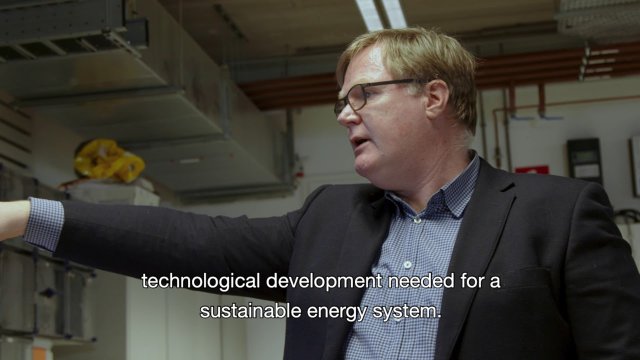The MEGAMIND (Measuring, Gathering, Mining and Integrating Data for Self-management in the Edge of the Electricity System) Research Program comprises a significant step in the second digitization wave in the energy distribution grid by developing a new way in which value-chain partners in local electricity systems (the electricity grid edge) interact with each other and with value-chain actors in the higher-level electricity system. We envision a highly self-managed system that automatically and dynamically steers electrical energy flows taking into account the technical boundaries of the network and while the energy transition unfolds. As this poses technical as well as regulatory challenges, MEGAMIND aims to develop a techno-regulatory transition pathway for the electricity ecosystem on the level of the distribution grid. The way value-chain partners in the local electricity system jointly adopt digital technologies, especially Artificial Intelligence (AI), and the way the legislator allows them to do so, are key for the success of the energy transition. Therefore, MEGAMIND brings together an inter-disciplinary team of top scholars in Energy Systems, Artificial Intelligence and Energy Regulation with key industrial stakeholders: the three largest Dutch Distribution System Operators, the Dutch Transmission System Operator and other internationally operating representatives of the entire valorisation and innovation chain.
The contribution of our Energy group focuses mainly on Work package 2 (Distributed Energy operation technologies) of the program and aims to increase the ability of grid-edge operators (e.g. prosumers, aggregators) to interact with the grid. Trade of energy services and energy flexibility on a local level is widely seen as a key prerequisite for the integration of renewable energy sources on a massive scale. This trade will grow into an inherently complex system, as it combines a cyber-physical system of vast numbers of interacting intelligent devices, with multiple stakeholders exchanging these services. To cope with this complexity, this work package focusses on a local market mechanism that: (1) is fair, transparent and posing the right incentives to all stakeholders, (2) is scalable, robust and increasing the resiliency of the distribution networks, (3) connects to the wholesale markets such that local and global stakes are balanced, and (4) has a feasible regulatory pathway, adapting the current market rules to new market realities. For this local market mechanisms will be advanced past the current state of the art by using advanced distributed market-based control and transactive energy technology and network constraint reasoning.
Concrete, our energy group will deal with the following two Research Tracks (RT):
RT Robust planning and control for local energy markets
The role of this RT is to investigate how energy management can support the setup and integration of multiple local energy markets. Each local energy market addresses the management of (a large number of) involved assets distributed in a certain area and optimizes the joint operation of these assets in direction of its own objective(s). However, in the surrounding area, several local energy markets may be present that all share the same grid infrastructure. This interconnects these local markets and hence multiple local energy management systems also have a joint task to stabilize the overall system and avoid e.g. overloading on connecting power lines or transformers. Furthermore, the local markets themselves, as well as the collective system, have interrelations with the forces of global energy markets. Therefore, we aim to investigate how these markets have to be set-up and organized such that they allow for complex interactions in a common and abstract manner without losing essential details required by the energy system. The interaction between multiple local markets leads to a multi-objective optimization and control problem, which by itself is already challenging. Moreover, being able to make contractual agreements and binding bids concerning energy exchange requires predictions on energy use and generation. Therefore, many unsynchronized and often incomplete data sources need to be incorporated to accurately predict the energy use, generation and flexibility of thousands of assets residing within the different local markets. Accuracy of predictions is key to this end in order to ensure the production or consumption of agreed energy quantities in a timeslot. Prediction errors are inevitable, however, requiring the use of robust energy management approaches techniques. Using such an approach allows to ensure overall system stability by using the flexibilities in the different local system to deal with the uncertainty in energy generation resulting from renewables and unpredictable energy consumption.
RT System performance versus privacy in energy management
In the future smart energy system, the operation of the grid, the setup of the energy markets and the (local) energy management depends heavily on the availability, quantity, characteristics, and quality/detail of data. This leads to a potential conflict between the system performance of the energy system and privacy. For this, we investigate the relative impact, relevance, and importance of different types of available data streams but also their future potential on the grid operation and the energy markets. In this context especially the question how local energy management may be implemented based on the availability and characteristics of data is considered. This insight in the impact and potential data has on the energy system, forms the basis for research. To this end we analyze which data at which level and in which detail is required for adequate energy system control and what possible rules and regulations on data governance and data sharing are needed. Hereby, specific attention is given to the influence of stochasticity and predictability of data. Starting from the quote that ´less may sometimes be more´, the overall objective is to find proper balances in the use of data w.r.t. different criteria like e.g., system performance versus privacy, energy savings versus energy consumption, preciseness versus computational effort. Different methods of aggregating and storing information is expected to aid in the process of creating control systems that are more robust against prediction errors and data loss.
interesting links
NWO published an article about the MegaMind project on their website and in IO Magazine, which you can find via this link.

